
[ad_1]
R. Rašidas agreed to share his impressions of working as a translator and living in Vilnius.
“I have lived here for almost five years, since August 2016. There were cultural and regional problems in my country. I was able to live in Iraq, but it was problematic and my family said that if possible, go to Europe, it will be better to live,” he said. Rashid at the beginning of the conversation.
In Iraq, he worked as an Arabic teacher, but as the geopolitical situation deteriorated, he had to find his way to Europe. After spending three months in Russia, which he came to with a visa, a trip to the Lithuanian border was later arranged for him. Here R. Rashid applied for asylum.
As a joke, he googled information about Lithuania, because he found out about such a country only after receiving an offer to go here.
“I received a residence permit, I lived in Rukla for three months due to integration, then I worked in Kaunas. It was very difficult because I did not speak Lithuanian, only English,” said a Kurd who lives in Vilnius.
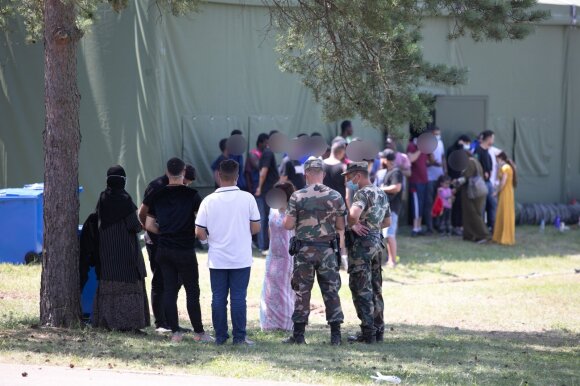
R. Rašidas does not hide that he appreciated the possibilities of living in other European countries; his siblings live in Germany and the Netherlands. However, R. Rašidas chose Lithuania.
“I have seen that there will be more money per month in Holland or Germany, but we also need more money to live, it is expensive there. I returned to Vilnius, I worked as a chef in various cafes and restaurants for several years. After that, I decided to open my own restaurants and now I have two bistros in Vilnius, one on Ševčenko street and the other in Saulėtekis, ”he was delighted.
He learned the Lithuanian language and works as a translator: many migrants lie
Having learned the Lithuanian language, R. Rašidas also got a job as a translator – when Lithuania faces an illegal immigration crisis, R. Rašidas is not without a job.
As you said, the Kurds currently come from Iran, Syria, Turkey, but mainly from Iraq.
“I heard not the same, but similar to my stories. There are people who say they have cultural problems, others say they have regional problems and a third says that there is war in the country. There are people who say there is terrorism in their country, the Kurdish-Arab problem, religious problems, “Rashid explained.
However, as the interviewee acknowledged, a significant proportion of the illegal immigrants he has to deal with are not telling the truth.
“I can’t say that everyone lies, but many people lie, because most of them do not want to live here, but want to live in other European countries for economic well-being,” admitted the Kurds living in Lithuania.
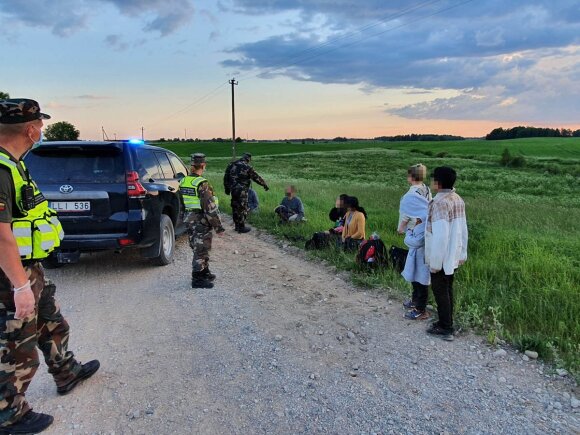
© VSAT
R. Rašidas said that currently migrants crossing the Lithuanian border illegally generally expect to earn a lot of money, have better living conditions; from what he told R. Rašidas, tour operators pay up to 20 thousand. euros.
“They are told that they will wait in Lithuania for four days, then a car will arrive that will take them to Germany or France,” noted R. Rashid.
However, the reality of illegal immigrants is different. They have to wait in Lithuania without knowing how long the procedures will take place and their asylum applications will be processed.
“People don’t like it, they want to drive faster, they can’t wait. And they are told that after ten days of quarantine it will be possible to drive. Now people have realized that he is lying and that it will not be as the organizers say, “Rashid said.
There are those who want to return to their countries of origin: conditions are not up to expectations
Another problem, he also acknowledged, is that illegal immigrants themselves expect very good conditions, for example, to be accommodated in hotels.
“I tell you when I go with the Red Cross or another organization, I’m sorry, but this country has never expected thousands or several thousand migrants to arrive. Now, with the rapid growth in numbers, the state is using tents. Tents will not be the same as living in Iraq or renting a house, ”emphasized R. Rashid.
When asked if migrants who crossed the border illegally understand that their travels are illegally organized, R. Rashid answered affirmatively.
“All people understand and know that they will arrive in Belarus with a visa and there they will go to Lithuania without a visa, but that there will be many interviews, people do not know,” said the interlocutor.
According to him, one of the common problems of temporarily housed migrants is food.
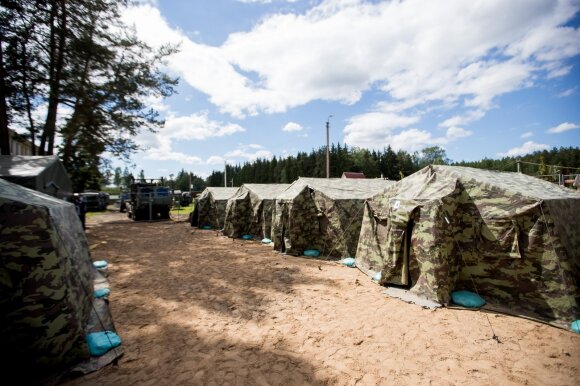
“They are often Muslim, they do not eat meat at all.” Do not eat pork, beef or chicken when it is not a Halal food (products that are processed separately from others and do not contain traces of Islamic substances, aut. “), He explained R. Rashid.
It is true that there is not much Halal food in Lithuania, so the migrants, according to R. Rashid, are adapting and starting to eat.
“There are children, pregnant women, families. (…) There are people who already want to return. They still live here in limited conditions, so some want to go back, ”confirmed the Kurds, who have lived in Lithuania for five years.
However, Rashid pointed out that illegal immigrants often lie to him.
“If I ask these people if they want to stay in Lithuania, they say yes, but nobody is telling the truth; if they only have five minutes away, they will try to go to Germany or another country,” he said.
Illegal immigrants ask for help on how to leave Lithuania: no one has asked for help to settle here
According to R. Rašidas, some migrants detained in Lithuania trust him. Others think that Rebaz works for the authorities and a third asks for help to get out of Lithuania.
“It just came to our attention then. So far, I have not received a request to help stay in Lithuania,” admitted the Kurdish who works as a translator.
As he said, R. Rašidas is happy to have found happiness in Lithuania; he also raised a family here.
“I have a son, he is 8 months old, his name is Arnas. This name also belongs to the Kurds. (…) I will continue to be here, my son is here, my wife is Lithuanian, she helps me a lot in business and in life ”, the interlocutor was delighted.
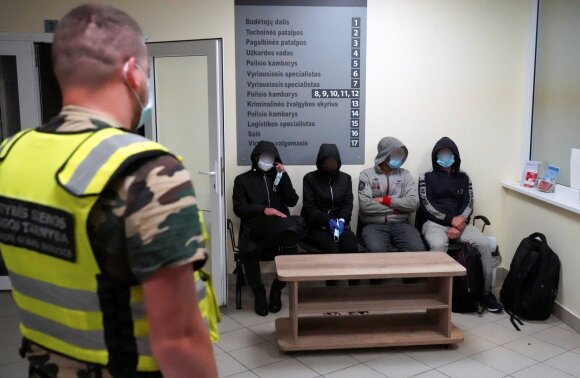
According to R. Rašidas, Lithuania should take several important steps to manage the crisis of illegal immigrants.
“Firstly, it is necessary to make known how the people who come here live, what the conditions are; it should be made known through the Kurdish and Iraqi channels. Secondly, we should also speak at the political level among the Lithuanian governments and Iraqi. However, I think the biggest problem is Belarus: Belarusians don’t get anything, they allow everyone to travel and they won’t get anything else, “he also admitted.
He described stereotypes: some expect a money tree, others consider all Muslims to be terrorists.
The interlocutor also commented on prevailing stereotypes, noted R. Rašidas, followed by both Europeans and migrants themselves.
“They believe that the EU is a tree from which money falls, but that is not true. “In Europe, people think that all Muslims are terrorists, and in the Middle East, people think that everything in Europe is free, that they can do and get whatever they want,” Rashid briefly described.
He said that people in Lithuania met a variety of people, but after talking more, they managed to find a large circle of Lithuanian friends. As a joke, he now has more Lithuanian friends than similarly lucky immigrants, who are also established in our country.
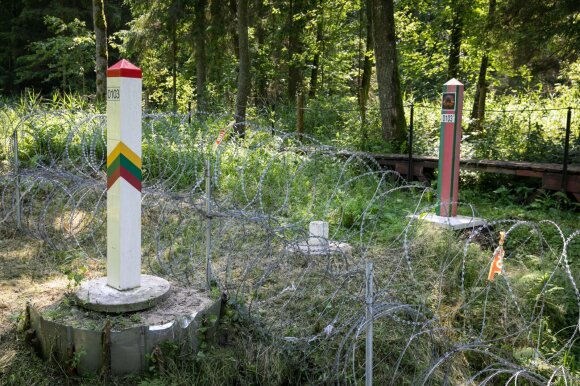
“At first, some people were afraid of me, they thought I was cheating, that I would steal, but step by step, when we meet several times, we share gifts on holidays, we visit each other, we get together. Now we are happy to be friends, “said R. Rashid.
He said he understood people’s caution because people’s experiences and lives are different, but, as the interlocutor said, most Kurds are friendly people who seek their place in the sun.
“The Kurds are a great nation without a state, they are friendly, they try to save their families, but they really respect each other, other cultures.” They just don’t have a state, “added R. Rashid.
It is strictly forbidden to use the information published by DELFI on other websites, in the media or elsewhere, or to distribute our material in any way without consent, and if consent has been obtained, it is necessary to indicate DELFI as the source.
[ad_2]